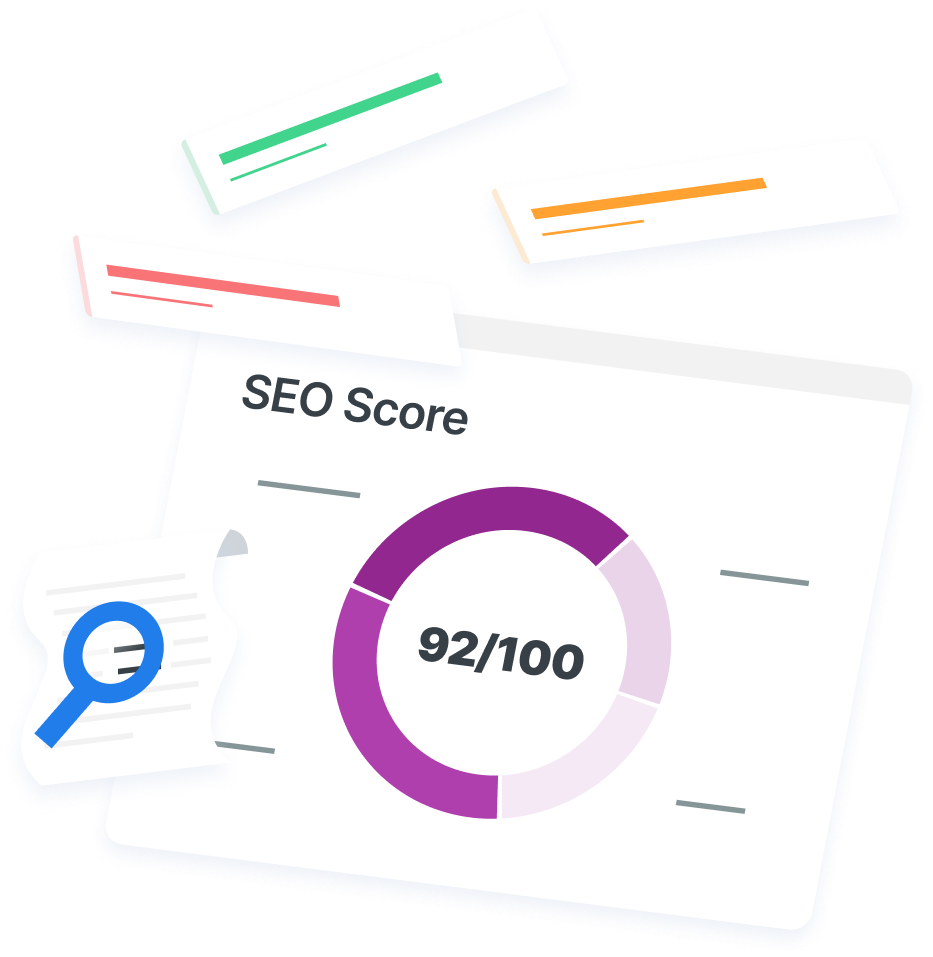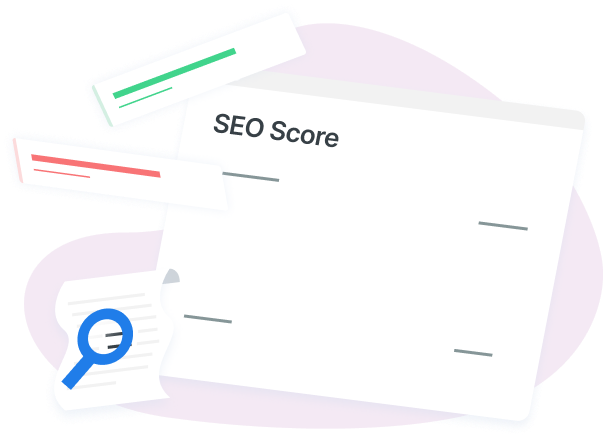-
 Published: Jan 16, 2022
Published: Jan 16, 2022
-
 8 min. read
8 min. read
-
 WebFX Team
WebFX Team Digital Marketing Agency
Digital Marketing Agency
- The WebFX team is made up of more than 450 subject matter experts in digital marketing, SEO, web design and web development, social media, and more. Together, they’ve helped WebFX’s clients earn more than $3 billion in revenue from the web — and that’s just in the past five years. @webfx
Knowing how to ethically and strategically craft a solid SEO campaign is kind of like knowing another language. Speaking to search engines through title tags, links, and quality content is all part of the conversation. More importantly, knowing what the 10 worst SEO practices on the web are is imperative to your site’s success. When black hat SEOs try to trick search crawlers into ranking their websites higher than they deserve, it’s pretty easy for the search engines to tell they’re dealing with an impostor:

Search engines like Google and Bing can easily pick out less-than-stellar SEO strategies and can penalize the offending site as punishment. We know you would never use such unethical practices, but just in case you got some bad information from an online “SEO guru,” you might want to make sure you’re not using any of the bad SEO practices in this list.
1. Generated content
One obvious black hat tactic is that of having a robot or computer program “write” content for your site. You’ve probably come across text spit out from a content generator at some point in your perusal of the Internet. It’s that text that makes zero sense at all but contains important keywords or phrases. This very bad SEO practice is meant to save webmasters time and get results, but the costs significantly outweigh any potential gains. First of all, everyone can tell you’re spamming. Secondly, you’re going to get penalized, if not completely deindexed, and then you won’t have much of a website at all. If you really want to do well on the Web, be authentic and get used to the idea of devoting time to your domain’s content. Check out our guide on how to produce user-generated content for your next post!
Looking for an all-in-one SEO audit tool? You’ve found it.
SEO Checker provides data on key metrics to give you:
- Complete SEO score
- Content Grade
- Site Speed Analysis
- and more.

2. Links from bad websites
Some people don’t know that Google looks at more than just the link pointing back to your website. Search crawlers look at the text and links on the page surrounding your link as well. Therefore, if the majority of your links are showing up on websites filled with spam and irrelevant content, your site is going to stand a higher chance of getting penalized – even if your content is perfectly respectable. Just like your mother, Google doesn’t want you hanging out in bad neighborhoods.
3. Stuffing your meta keywords
Much like adding links in comments, this tactic no longer works. It’s a mystery to me why people still try to do it because they certainly aren’t seeing results from it. Back when the Internet was still young, meta keywords could potentially boost your rankings for certain terms. However, just like keyword stuffing, this tactic hasn’t worked for years, which means putting a list of your targeted keywords in your meta keywords is about as effective as… 
4. Duplicating your own content
Even though you may have written the world’s best blog post, you still can’t use that content on 10 different pages of your site as a time-saving SEO strategy. Some people think that as long as they’re the original owners of the content, Google won’t care if the same paragraph shows up multiple times on their site. But Google does care. A lot. If you aren’t taking the time to create new and unique content for each page of your site, the search engines aren’t going to trust you.
5. Duplicating someone else’s content
Obviously, the only thing worse than duplicating your own content is duplicating someone else’s content. This is one of the worst SEO practices you can perform for your site. Google sees the duplication of offsite content as a lack of effort, and, in some cases, as plagiarism. To always make sure you are playing by the rules, the best practice is to always write new content and to write it well. On the flip side, it could happen to you, so here’s a quick guide on what to do if someone steals your content for their site.
6. Cloaking
Cloaking refers to deliberately showing one kind of content to the search crawlers and another to your human visitors. Webmasters who use cloaking are usually trying to hide something from search crawlers (like tons of ads, computer-generated content or spammy links) and, as a result, search crawlers aren’t too fond of it.
7. Keyword link stuffing
This is by far one of the worst SEO strategies in the book, mainly because it’s like waving a flare and shouting “please penalize me!” Especially if you’re doing this on other people’s sites via a guest post.  The recommended links-to-text ratio is one link for about every 125 words… at most. And you should really be linking to external domains only once in each post. When Google sees that you’re linking to “Canadian boots” six times in a 600-word-long guest post, your site is going to be in trouble, and so is the site that lets you publish that post. Read up on some ethical linking strategies before you go shoving your keywords in the Internet’s face.
The recommended links-to-text ratio is one link for about every 125 words… at most. And you should really be linking to external domains only once in each post. When Google sees that you’re linking to “Canadian boots” six times in a 600-word-long guest post, your site is going to be in trouble, and so is the site that lets you publish that post. Read up on some ethical linking strategies before you go shoving your keywords in the Internet’s face.
8. Invisible keywords
Just because your keyword text is the same color as the background of your site does not mean that no one will notice it. Again, this is a really outdated trick that black hats try to use to fool search crawlers, but it’s completely ineffective and will likely result in a penalty. Especially if you’re just typing your keywords 500 times in the hopes of actually ranking for them. Because search crawlers are robot-like programs, they don’t see the Internet the same way we do. They can see your “invisible” keywords, but they aren’t going to rank you for putting them there.
9. Buying links
It’s a pretty well-known fact that Google strongly disapproves of link builders and webmasters paying for links. Whether it’s directly paying for a link in a directory or paying for a blog post slot where you can add links, link buying is one of the quickest ways for you to get penalized by Google. Links are supposed to be all about connecting people to relevant content and, in a sense, voting for the sites you find the most valuable. Simply buying your way to the top of the SERPS is cheating both Google’s crawlers and its users, and the end results are never pretty. (Hint: they’re usually some kind of penalty).
10. Misleading headlines
Lastly, I’d like to throw misleading headlines under the bus. This is a personal pet peeve of mine – and for good reason. Here’s what I’m talking about: You see a Twitter link for an article titled “These 15 Tips About Vegetables Will Change Your Life.” When you click on the link, though, all the post talks about is why people should eat vegetables and how vegetables have water, which “studies show” is also good for you. How does that change my life?! 
Avoid these 10 worst SEO practices on the web
Bad SEO practices are everywhere and they’re tempting to perform. Just remember, the long-term costs outweigh any potential immediate gains, especially with Google’s algorithm updates happening more frequently. SEOs have become so obsessed with getting clicks that they forget what’s actually important: turning those clicks into real visitors and those visitors into conversions. To do that, you need to create honest and valuable content. If you keep posting misleading headlines you may get some clicks off of them. Heck, you may get tons of clicks off of them. But the majority of those viewers are going to bounce as soon as they realize that you’ve led them astray. And then what do you have? A few hundred clicks and a ridiculously high bounce rate. Hmmm… SEO is made up of many ethically sound and honest practices… these just aren’t some of them. Now that you have an idea of the 10 worst SEO practices on the web, it’s time to apply some of those best practices to grow your site! If you have a question about the best and worst SEO practices, shout out to us in the comments section below! We’d love to help you make your SEO strategy even better than it already is. If you’re after a tool where you can receive an instant SEO audit with recommendations plus explanations on how to improve your site’s SEO, explore our free SEO toolkit.
-
 The WebFX team is made up of more than 450 subject matter experts in digital marketing, SEO, web design and web development, social media, and more. Together, they’ve helped WebFX’s clients earn more than $3 billion in revenue from the web — and that’s just in the past five years.@webfx
The WebFX team is made up of more than 450 subject matter experts in digital marketing, SEO, web design and web development, social media, and more. Together, they’ve helped WebFX’s clients earn more than $3 billion in revenue from the web — and that’s just in the past five years.@webfx -

WebFX is a full-service marketing agency with 1,100+ client reviews and a 4.9-star rating on Clutch! Find out how our expert team and revenue-accelerating tech can drive results for you! Learn more
Try our free SEO Checker
Boost your site’s search performance with our free SEO Checker. Analyze your website for optimization tips on titles, headers, content, speed, and more. Get a free report now to enhance rankings on Google, Bing, Yahoo, and beyond!



How Is Your Website’s SEO?
Use our free tool to get your score calculated in under 60 seconds.
Try our free SEO Checker
Boost your site’s search performance with our free SEO Checker. Analyze your website for optimization tips on titles, headers, content, speed, and more. Get a free report now to enhance rankings on Google, Bing, Yahoo, and beyond!






